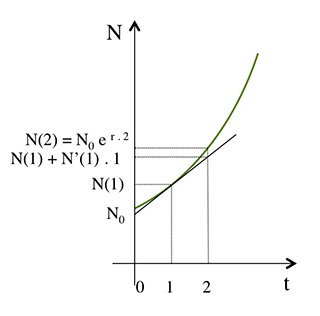Known as the Father of Algorithms, Professor Donald Knuth, recreates his very first lecture taught at Stanford University. Professor Knuth is an American computer scientist, mathematician, and professor emeritus at Stanford University.
Category Archives: Algorithmie
Claire Mathieu – Algorithmes
Complexité de Kolmogorov et profondeur logique de Bennett
Comment un ordinateur peut comprendre le contenu d’une image ?
Algorithmes randomisés
Gilles Dowek : Une deuxième révolution galiléenne?
Bioinformatics: Genomes and Algorithms
In this course, you will discover how computer science supports the interpretation of the text of genomes. Running the adequate programs, a computer may produce predictions on the location of the thousands of genes in a living organism and the functions of the proteins these genes code for.
You are not a biologist? Attending this course, you will be introduced to several entities and processes involved in the interpretation of the genomic texts: cell, chromosome, DNA, genome, genes, transcription, translation, proteins and many more.
You are not a computer scientist? This course is also an introduction to algorithms on character strings: pattern searching, sequence similarity, Markov chain models, or phylogenetic tree reconstruction are some basic algorithms which are implied in genome sequence analysis and will be explained.
You are neither a biologist nor a computer scientist? This course is a great opportunity to a joint approach to genomics and algorithmics, or if you prefer, to algorithmics and genomics.
PRE-REQUISITES
A scientific culture will make easier the understanding of the notions studied.
Fin des inscriptions : 05 déc 2015
Début du Cours : 02 nov 2015
Fin des cours : 05 déc 2015
Effort estimé : 02:00 h/semaine
程序设计与算法 / Fundamentals of Programming and Algorithms
本专项课程是针对计算机相关专业的学生开设的计算机程序开发能力培养的课程。其内容涵盖了计算机基础知识,C程序设计基础,C++程序设计,算法基础,数据结构与算法相关的内容。 我们的教学目标是从基本的计算机知识开始,逐步培养熟练使用C/C++语言进行程序设计的能力、熟练使用基本算法解决问题的能力、利用数据结构组织设计算法的能力,直至培养起能够运用高级数据结构和算法解决复杂问题的能力。 因此,我们希望本专项课程能够帮助同学们完成从仅了解基本的计算机知识到能够利用高质量的程序解决实际问题的转变。
Next Session : Janvier 2015
Durée: 8 weeks
Quantité de travail estimée: 4-8 hours/week
Peking University
Peking University is determined to make its education openly accessible to students in China and around the world. With over 3000 faculty members, Peking University offers excellence in teaching and learning. Founded in 1898, Peking University (PKU) was the first national comprehensive university in China. For the past 115 years, with its hundreds of thousands of outstanding alumni, Peking University has made prominent contributions in the humanities and sciences to further China’s prosperity and progress.
Optimisation Stochastique Évolutionnaire
L’objectif de ce MOOC est de découvrir comment optimiser par évolution artificielle et algorithmes génétiques parallèles des problèmes difficiles et multicritères pour obtenir de manière régulière des résultats compétitifs avec l’intelligence humaine en ingénierie et sciences appliquées.
Les algorithmes évolutionnaires (algorithmes génétiques, stratégies d’évolution, programmation génétique) sont parmi les meilleurs algorithmes actuels d’optimisation approchée. Ils sont de plus en plus utilisés dans l’industrie pour leur performance et leur capacité à trouver rapidement de bonnes solutions à des problèmes difficiles, mal posés, multi-critères et pour leur capacité à exploiter des ordinateurs parallèles, massivement parallèles et des écosystèmes de calcul potentiellement hétérogènes.
Systèmes dynamiques et équations différentielles
Une masselotte accrochée à un ressort, un pendule, ou un circuit électrique connectant condensateur et bobine, constituent des exemples de systèmes dynamiques bien connus, car étudiés au lycée. Mais les exemples abondent tout autant en chimie, en biologie ou en économie.
Cliquez sur l’image pour accéder à l’article agrémenté d’un visualiseur de croissance exponentielle interactif.
